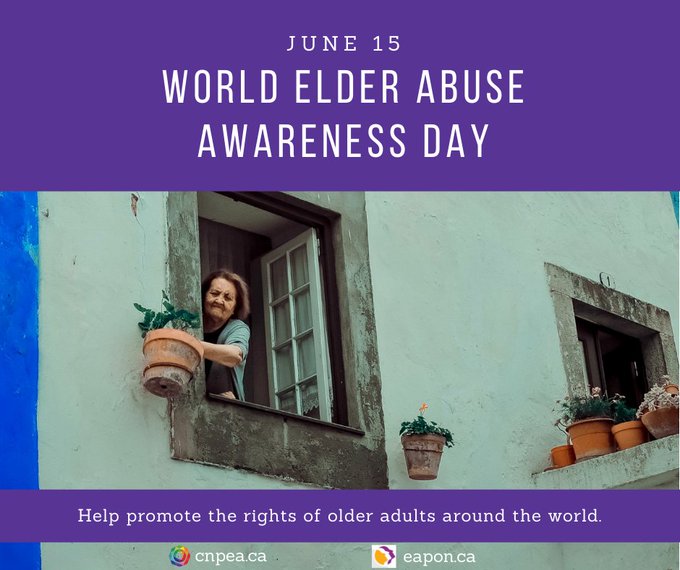Today is World Elder Abuse Awareness Day. Every June 15, nations call attention to one of our most vulnerable populations, our elders. It is a day for advocacy, love, and awareness. It’s such an important topic that the United Nations marked it as an official United Nations International Day to acknowledge the significance of elder abuse as both a public health issue and a human rights issue.

Abuse of Seniors
It is estimated that up to 16% of seniors suffer some form of abuse at the hands of anyone from their spouses to their children or other family members, caregivers or service providers, or other individuals in positions of power or trust. This abuse comes in many forms: physical, emotional, financial, and sexual. Numbers are expected to increase worldwide as many countries face rapidly ageing populations.
Did you know that neglect is also considered a form of abuse? This year in particular it has come to the forefront in the media because of the state in which some seniors were found to be living during COVID-19.
Some people take advantage of the combination of frailty and forgetfulness that sometimes occurs in seniors. Our eldest family members don’t have the physical strength to fight back if they are being physically abused. Some are harshly psychologically abused for their natural physical and mental decline.
But no more. Our seniors are valuable members of society. They have decades of experience from which they can teach us. They have worked hard their whole lives to make outlet lives better and they deserve our respect and to enjoy their golden years. They should be able to trust the younger generations, not fear for their financial, emotional, and physical safety.
What Can You Do?
Call out others on abusive and insulting behaviour. If you see someone mistreating a senior, don’t stand idly by. Protect your own safety but also facilitate theirs. Click here to read more on how to identify the signs of elder abuse.
Advocate. Be part of seniors abuse awareness groups and help get the word out on what is unacceptable behaviour. There are so many other opportunities to get involved – click here to see some suggestions.
Visit them. Be part of a volunteer program. Visit seniors and provide them with some much needed trusted companionship. Sometimes, that is the only time they open up about someone mistreating them, or perhaps you may witness neglectful conditions.
With increased education and funding, we can work to put into place the systems changes necessary to prevent elder abuse.

